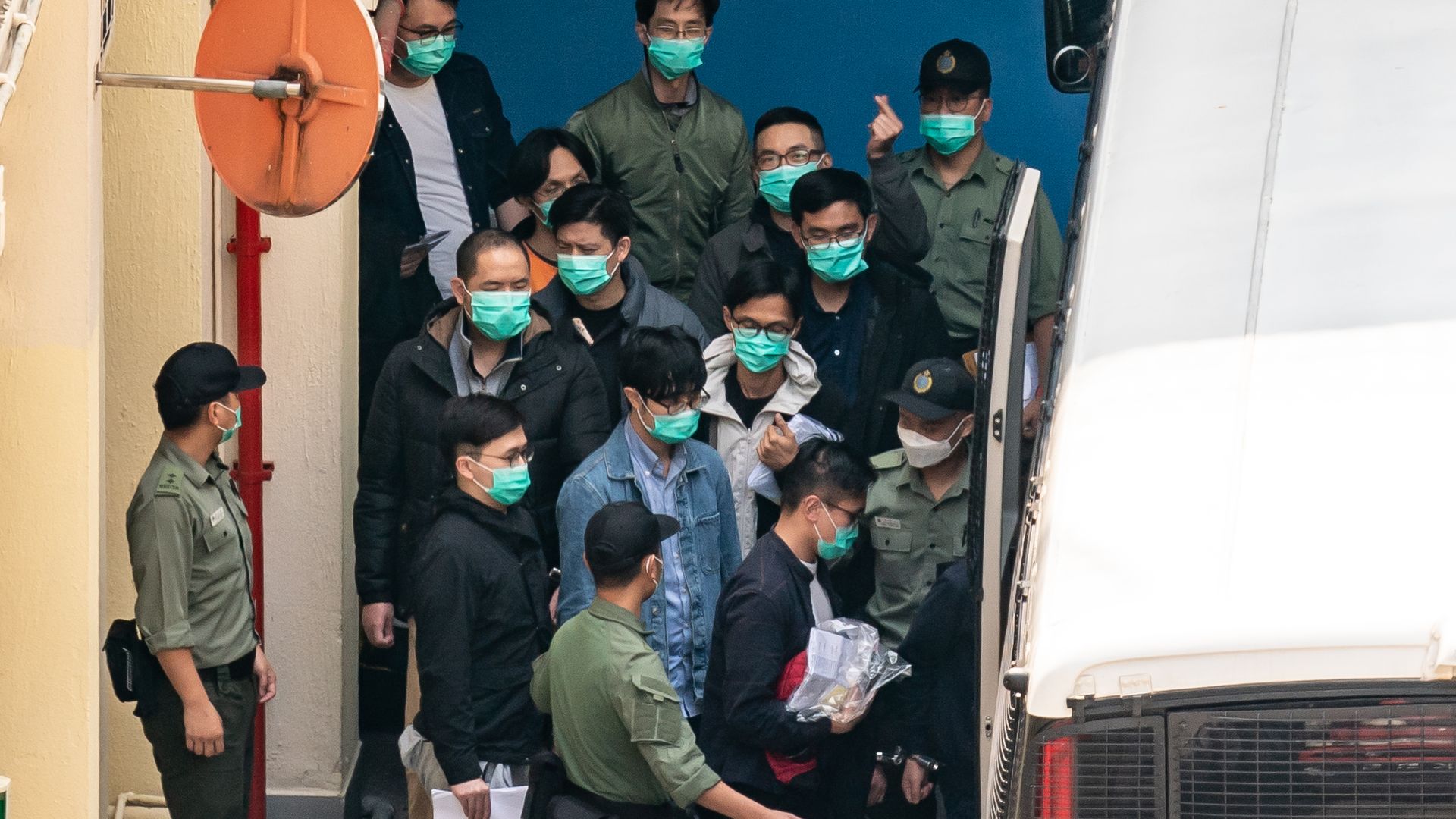Mar 4, 2021 - World
32 of 47 Hong Kong activists denied bail after charges under national security law
Add Axios as your preferred source to
see more of our stories on Google.

Some of the 47 Hong Kong opposition activists boarding a Correctional Service Department van at Lai Chi Kok Reception Center. Photo: Anthony Kwan/Getty Images
